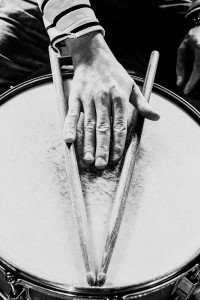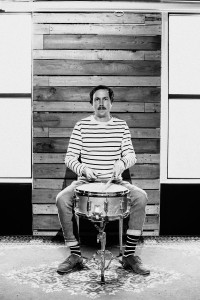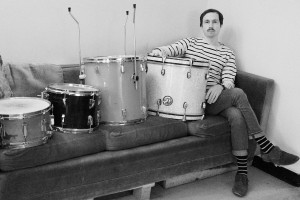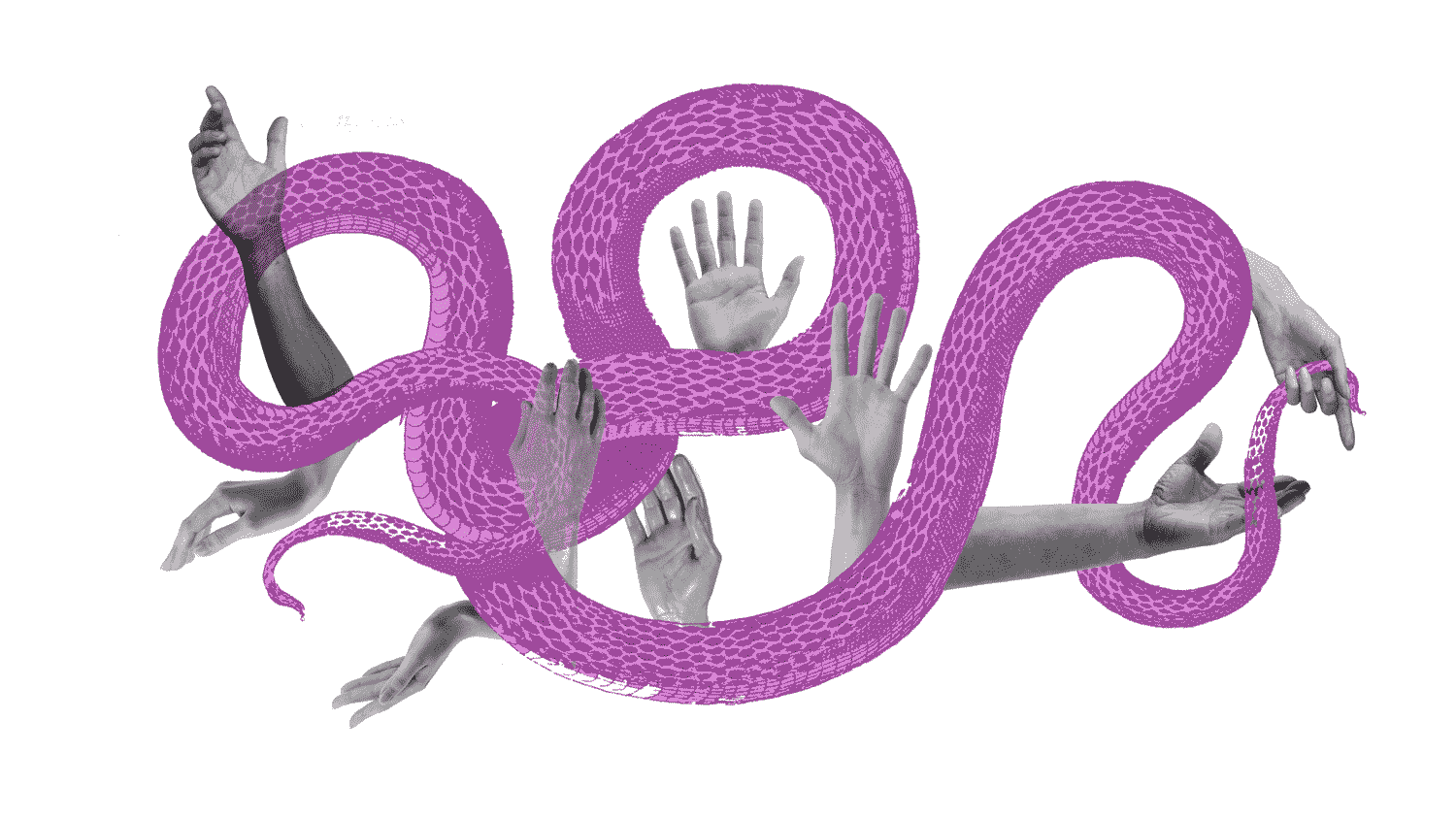“I do not have a career in 2018. I have a rumour that the internet, by the ‘90s, made more accessible.”
This is Katie Duck, an improvisational dancer, choreographer and teacher based in Amsterdam. Her rumour, as she puts it, spans 40 years. Though originally from the Los Angeles area, Katie “realized that [she] was never going to be a successful capitalist” and moved to Europe in 1974. Since then, she has travelled extensively to host workshops and perform alongside established and emerging musicians. This month, Katie’s in town.
What brings Katie to Vancouver is Ben Brown.
“Katie lives her art. She is. There is no separation between her practice and who she is. As soon as you start talking to Katie, you know her politics. At no point is she going to teach a dance class. She’s going to teach Katie, including all her capacities as an artist. […] I’m very curious to see the response.”

Ben Brown is a locally-based percussionist wearing many hats. An improvisational musician, formally trained in jazz and classical, his accomplishments include an extensive discography comprising many bands; invitations to residencies, workshops, collaborations and private studies; and performances at venues ranging from concert halls to living rooms. From 2013-16, Ben hosted Music and Movement Mondays (MAMM), a regular series that saw musicians and dancers come together for improvisation sessions. Ben has had an ongoing mentorship with U.K.-based percussionist, Dame Evelyn Glennie since 2015. In 2014-15, Ben travelled to Amsterdam to work one-on-one with Katie for the first time.
“She’s constantly working. Her whole thing is do the practice, do the work, all the time. When I go to work with her, there’s no formal structure, I just enter into her life. And her life is work,” explains Ben. “There’s a really integral community of improvised musicians and dancers [in Amsterdam], always together, music and dance.”
When asked why she chose to mentor Ben, Katie begins with praise: “Ben is an open visionary artist. His enthusiasm to move his work towards a music theatre platform was infectious. He brings a child-like curiosity to anything you toss at him. He is an outstanding improvisation drummer. That he has a wish to collaborate with dance, text and performance art shows a potential for how he is going to create work.”
That said, the decision wasn’t necessarily a conscious one. “I don’t know if I ever agreed to mentor Ben,” she explains, “I started to share the work.”
Katie’s approach to mentorship, as with all aspects of her practice, means the stripping away of convention. As an artist who is constantly travelling and assuming the role of teacher, the relationship of mentor-mentee is more about the discovery of likeminds around the world.

“That stage of being mentored disintegrates to colleague, eventually. With some of these relationships, there is a period of abandon, where the artists need to kill the mentor. In other cases, there is a smooth transition from mentor to colleague. The aim is to be a colleague, to leave the hierarchical leadership roles behind and get to the work. […] I like being this age as an artist and teacher and mentor.”
Reflecting on their time together, Ben reinforces the notion of mentorship as camaraderie: “With Katie, a mentorship means that I go over to her house and drink wine and we make a really nice soup together. She talks and I listen. And sometimes I talk a bit, too. We could be doing anything because I learn from her no matter the activity — rehearsals, workshops, performances or talking.”
On September 28, Katie will be performing CAGE with Ben and fellow improvisational musicians Roxanne Nesbitt and James Meger at the Scotiabank Dance Theatre. Written in 2014, CAGE is a score that Katie performs where invited, the content evolving with each iteration and live-audience reception. It contains four texts: “The Institutionalization of Fucking Everything,” “Love and the Lack of,” “Death” and “The Anatomy of the Vagina.” Taking its name from the avant-garde composer and theorist, John Cage, it intentionally challenges the divide between stage and audience. “[CAGE] begs the public to engage,” Katie explains, “It is a hopeful moment for me as an artist, that the public [be] moved but never impressed.”
The texts are used differently each time, but the tension point remains the same. “I wanted to publicly say the word, ‘vagina,’” says Katie, “I wanted to say this word in different cultures, in different languages, and monitor the tension in the room in the aftermath of saying the word, ‘vagina.’”

When I ask if CAGE is intended to be performed with women collaborators, its Vancouver date being an exception, Katie pushes back: “I have not intentionally eliminated men to collaborate in CAGE. […] I suppose it is because feminism is implied in CAGE that women ask me [to collaborate] more than men.” Katie’s feminism is intersectional, expanding, “The vagina does not belong to woman. It is a place where we all come from in one form or another.”
There is a stated irony to Katie’s practice that while she rejects traditional economic structures as “distractions from the work,” grants fund this trip to Vancouver and other places. It is not ideal, says Katie: “These economic structures perpetuate a need to win awards with an unavoidable need to compete.” When artists are competing for the same funding, it limits their opportunities to build community. Katie has worked to create her own sustaining economic structures through touring, taking jobs in academies and a summer course in Amsterdam. “It is wonderful to make a living with something you love. It’s a shame that it is wonderful. It should be normal,” explains Katie. “We should not have to battle so hard to be artists.”
Though at different stages, living in different countries, Katie and Ben are similar in many ways. Speaking to what drives him, Ben says, “I do art to connect with people. […] The beauty of doing so many different disciplines [is that] you can thread them together and find the commonality.” He continues, “Katie does that so beautifully. It’s always real. Always genuine and full of humility, never for the sake of being different. Or for the sake of being hard or challenging. It’s always been an extremely personal exchange. That’s also my goal.”
X
On September 23, Katie Duck will be hosting a workshop with All Bodies Dance at the Roundhouse Community Centre. On September 25, she will be performing with Sawdust Collector at Gold Saucer Studios. On September 26, she will be performing with Invisible Taste at China Cloud. And on September 28, you can catch CAGE at the Scotiabank Dance Theatre. Tickets are $30 or $24 for students.


